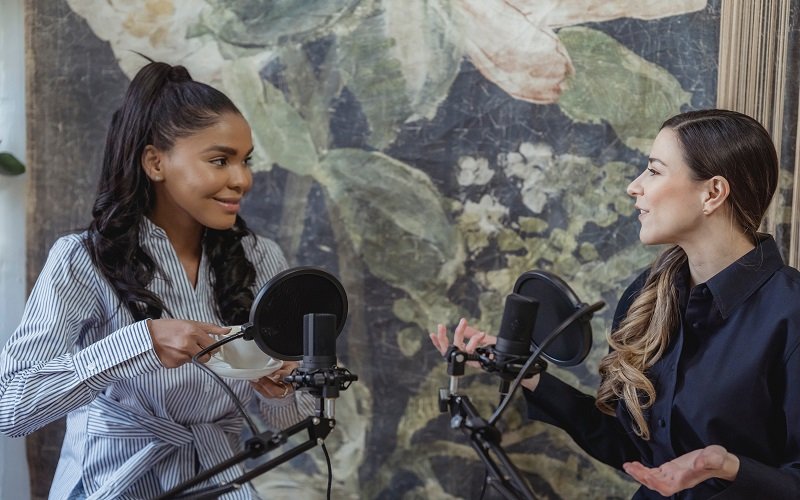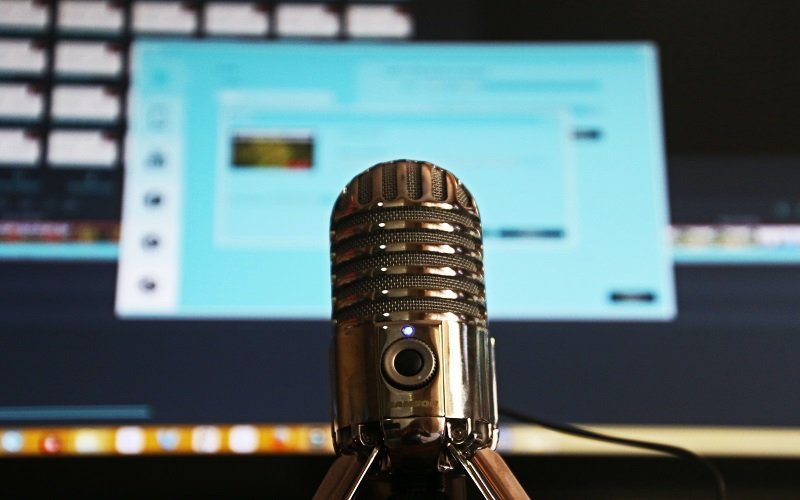Do you love listening to podcasts? Are you thinking about starting your podcast? If so, you’re in luck! This step-by-step guide will show you everything you need to know to get started. In this guide, we will discuss the following topics: choosing a topic for your podcast, finding guests for your podcast, recording and editing your podcast, and publishing your podcast. Let’s get started!
1. Find the right host
The first step to starting a podcast is finding the right host. There are many hosts out there, so it’s important to do your research and find one that fits your needs. Some things you may want to consider are price, features, ease of use, and customer support.
Once you’ve found a few potential hosts, take the time to read reviews and compare prices. You can also find the review here for some hosts you can use and the price for those. Finding the right host is important because it will determine how easy or difficult it is for you to get your podcast up and running.

A good host will provide you with all the tools you need to create a professional-sounding podcast, while a bad host can make the process more frustrating than it needs to be. Additionally, a good host will offer customer support in case you have any questions or run into any problems. Make sure to do your research and choose a reputable host that fits your budget and needs.
2. Choose a topic
The next step is to choose a topic for your podcast. This can be anything that you’re passionate about or that you think would be interesting to your listeners. If you’re having trouble coming up with a topic, try brainstorming a list of potential topics and then narrow it down to the one that you think would be the most fun to talk about. Once you’ve chosen a topic, it’s time to start thinking about who your guests will be.
Guests are an important part of any podcast, so it’s important to choose wisely. When choosing guests, look for people who are knowledgeable about your topic and who would be interesting to listen to. Additionally, try to choose guests who have different perspectives on your topic so that your podcast is well-rounded and informative. Once you’ve chosen your guests, it’s time to start planning for the recording process.
3. Record and edit your podcast
Recording and editing your podcast can seem like a daunting task, but with a little planning, it’s quite simple. The first step is to choose a recording location. This can be anywhere that’s quiet and has good acoustics.
Once you’ve chosen a location, it’s time to set up your equipment. If you’re using a laptop, you’ll need to connect it to a microphone and an audio interface. If you’re using a smartphone, you’ll need to download a recording app and connect your phone to a microphone. If your equipment is all set up, it’s time to start recording!

Make sure to hit the record button before you start talking so that you don’t miss anything important. If you make any mistakes while recording, don’t worry! You can always edit them out later.
Moreover, once you’ve recorded everything, it’s time to edit your podcast. This is where you’ll add intro music, remove any mistakes, and add any sound effects that you want. If you’re not comfortable editing your podcast, you can always hire someone to do it for you.
4. Publish your podcast
The final step is to publish your podcast. This can be done through various hosting platforms, as we already mentioned. The publishing process will vary depending on which platform you use, but most platforms will walk you through the process step-by-step. Once your podcast is published, it’s time to start promoting it!
You can promote your podcast through social media, by emailing your subscribers, or by reaching out to influencers in your niche. The more people you can get to listen to your podcast, the better!
You can also submit your podcast to directories like iTunes and Stitcher. This will make it easier for people to find and listen to your podcast. The more people who listen to your podcast, the more successful it will be!
5. Market it
One of the best ways to promote your podcast is through social media. Make sure to post about your episodes on all of your social media platforms, and encourage your listeners to share them with their friends. You should also create a landing page for your podcast on your website. This landing page should include information about your podcast, as well as links to all of your episodes.

You can also use email marketing to promote your podcast. Send out an email to your subscribers letting them know about your new podcast and providing a link to it. You could even offer a discount or freebie for anyone who subscribes to your podcast. If you have any influencers in your niche, reach out to them and ask if they’d be interested in promoting your podcast on their social media platforms or websites.
6. Monetize
Once you’ve built up a following for your podcast, you may want to start monetizing it. There are a few different ways to do this. One way is to sell advertising space on your podcast. You can either do this yourself or hire an ad agency to do it for you. Another way to monetize your podcast is to become a sponsor for another business.
This involves promoting the business on your podcast in exchange for a fee. You could also create and sell products related to your podcasts, such as e-books, courses, or merchandise. If you have a large enough following, you could even charge for access to exclusive content, such as bonus episodes or behind-the-scenes footage.
Experiment with different monetization strategies and see which ones work best for you and your podcast.
By following these simple steps, you’ll be well on your way to starting a podcast successfully. Just remember to choose a topic that you’re passionate about, record and edit your podcast carefully, and promote it as much as you can. If you do all of these things, you’re sure to find success! Thanks for reading, and good luck!
